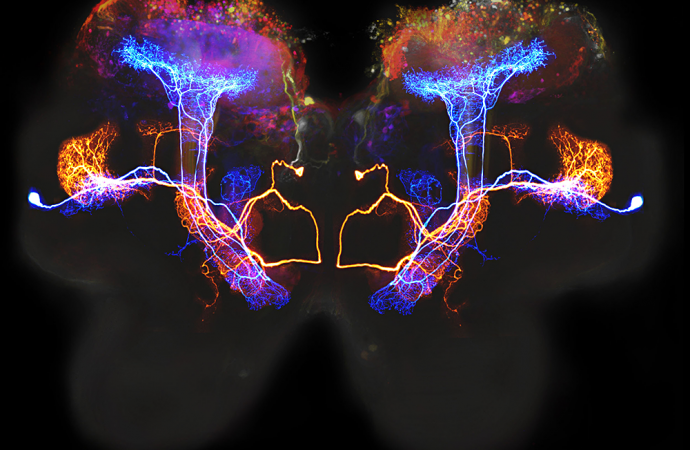Neurons come into being when their progenitor cells ignore proliferative signals during brain development. A new study published today in Neuron journal describes, for the first time, the mechanisms responsible for turning the neuronal progenitor cells “deaf” to renewal triggers.
New neurons, the fundamental units of the nervous system, are formed through neurogenesis, a process during which neuronal progenitor cells divide and renew themselves. Eventually, at one point, these cells receive signals to differentiate and become a specific type of cell. What remained unknown until now was what activated the switch from self-renewal to specialisation into neurons.
Bcl6: the blockage switch
The researchers at the VIB-KU Leuven (The Flanders Institute for Biotechnology) found that Bcl6, a repressor protein that promotes neurogenesis, acts to silence genes associated with self-renewal and division. By binding directly to these genes, Bcl6 represses a cascade of signals that favour proliferation, thus promoting a pathway of differentiation. Since Bcl6 is expressed only in specific subsets of cells during brain development, it allows for the precise fine-tuning of brain developmental processes.
Pierre Vanderhaeghen, one of the study’s lead authors, hopes that the team’s findings may help to understand the paths of differentiation of other cell types. “This [finding] may be also important in the context of cancer biology, since stem cells and cancer cells usually respond to the same proliferative cues that are precisely inhibited by Bcl6”, he states.
Reference:
Cortical neurogenesis requires Bcl6-mediated transcriptional repression of multiple self-renewal-promoting extrinsic pathways, Bonnefont et al. Neuron 2019 [OPEN ACCESS]
Image Credit: NICHD / Flickr





